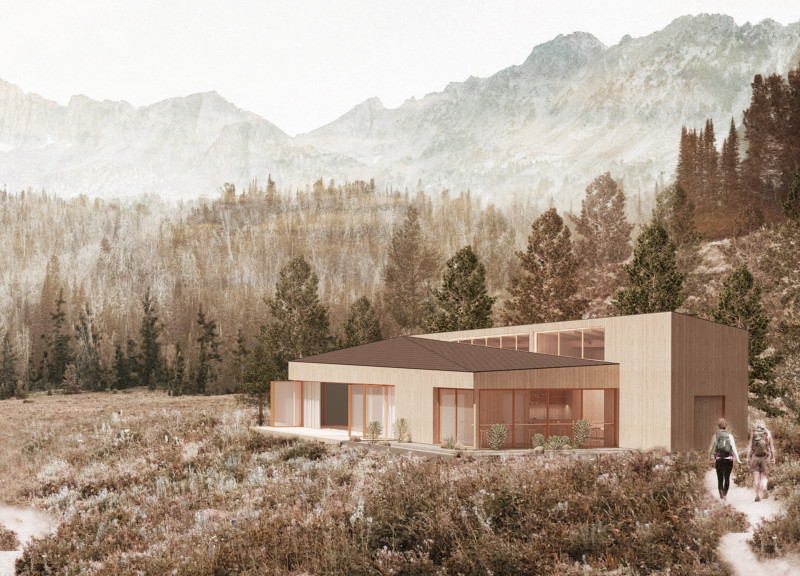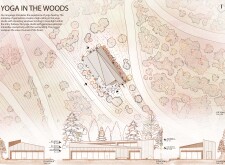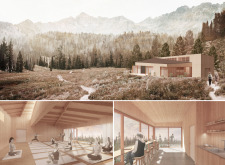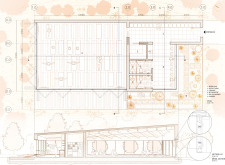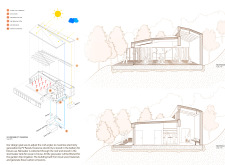5 key facts about this project
Yoga in the Woods is designed to create a calm space for yoga practice, integrated within a forested area. The project emphasizes a connection to nature, fostering a sense of wellness and mindfulness for its users. Using geometries, the design features high ceilings and clerestory windows that maximize daylight and enhance the environment suitable for relaxation and meditation.
Design Elements
The high ceiling in the yoga studio gives a feeling of spaciousness, allowing light to flood the area. Clerestory windows are placed to ensure ample natural light while reducing glare, making it easier to focus during practice. This thoughtful approach to natural lighting creates a welcoming atmosphere that promotes tranquility.
Integration with Nature
The building's layout focuses on connecting with the surrounding landscape. Large openings throughout the design offer clear views of the forest, bridging indoor and outdoor experiences. This arrangement not only encourages users to engage more with the natural environment but also enhances the benefits of yoga practice.
Sustainability Features
Sustainable practices are a core aspect of the design. A rainwater collection system has been integrated to allow for the reuse of water in various functions within the building. Additionally, the roof is designed to support photovoltaic panels, which generate electricity. These features contribute to the self-sufficiency of the building and highlight a commitment to environmental responsibility.
Material Usage
Locally sourced wood is used as the main material in the structure, emphasizing its connection to the surrounding area. This choice not only supports sustainability by reducing transportation but also creates a warm, inviting atmosphere. The natural tones of the wood enhance the overall experience, connecting users with nature inside the yoga studio.
Large windows framed by natural wood open up to the forest, inviting the outdoors in and creating a space that feels fluid and connected to the environment.


